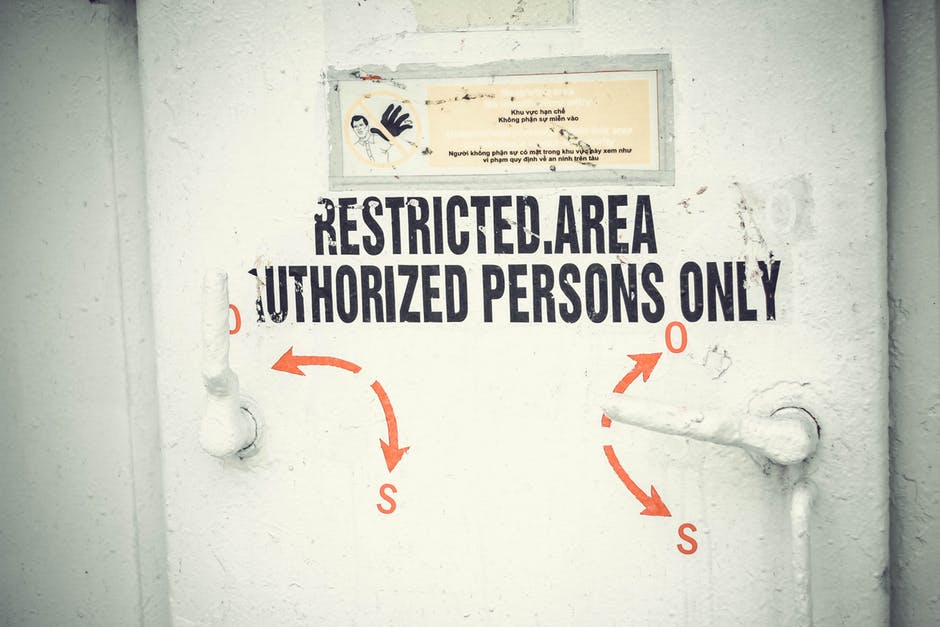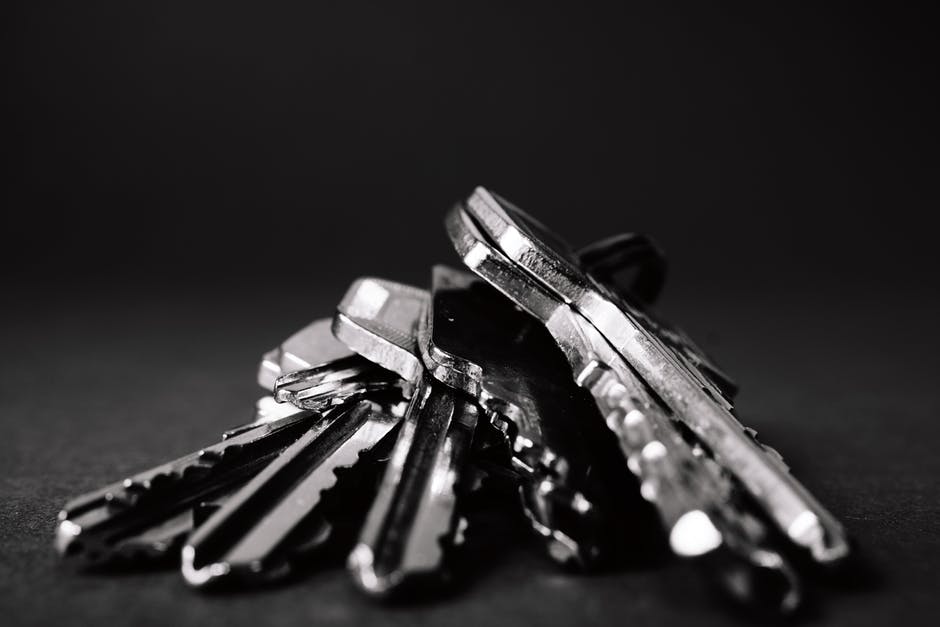On being your own bank

Cryptocurrencies — some say that they are the foundation of a parallel financial system. Advocates of cryptocurrency frequently extol the virtues of being your own bank. But, what are some implications of being your own bank?
Let’s be clear. When we talk about cryptocurrencies, we mean things like Bitcoin, Ethereum, DASH and Monero. Cryptocurrencies function as a mode of payment when people recognise them as stores of value.
Before proceeding further, it’s highly recommended that you do your own research (DYOR) before investing into any cryptocurrencies. This article is meant for informational purposes only, and should not be construed as recommendations for you to purchase cryptocurrencies.
We are not investment advisors. But we are pretty enthusiastic about cryptocurrency!
Cryptocurrency, at its very basic, promises a few things.
It’s these few things that let you be your own bank. So, what are they?
First, the freedom to store your tokens wherever you like, however you like. Whether it be a hot wallet, or a cold wallet, online or offline, the choice is entirely yours. As long as you have access to the wallet, you can receive funds. That’s a huge step towards being your own bank: By being in charge of the wallet.
Second, the freedom to transact with whomever you like, wherever they are. Whether they are in Europe, or Africa, or Asia, or the Americas, you can send cryptocurrency to them. As long as you have your private key, and their wallet address, you can send funds to them. That’s also another important part of being your bank: The ability to withdraw.
Third, for some cryptocurrencies, the promise of transparency and traceability. With the exception of privacy-focused cryptocurrencies like DASH and Monero, funds entering and exiting a blockchain address can be viewed, and audited. Every transaction in, and every transaction out, is displayed on the blockchain explorer. Being your own bank, this traceability is priceless.

So far, so good. So, is being your own bank something like having your own piggy bank?
Some basics.
To some extent, you’ll have to understand how the technology works.
At first glance, cryptocurrencies and blockchains seem to have nothing in common with your bank account.
But, there are some similarities, when you get a little more into the rabbit hole.
When you get started with a cryptocurrency, you’re likely to download a crypto wallet.
You’ll be asked whether you want to open a new account, or restore an old account.
Opening a new account
Opening a new account is easy; You’ll be astounded as to how quickly you can get your account address.
Most account addresses will be a mishmash of numbers and alphabets.
This is the account address that you hand out to people, to say, “Send me money here.”
Just like a normal bank account, you can send funds once you know the account number.
It isn’t exactly like a piggy bank; it’s more like you’re running your own bank account.
Recovery Phrase / Mnemonic Phrase
When opening a new account, normally, the software will produce a “recovery phrase” or “mnemonic phrase” : 12, or 24 words, randomly picked from a dictionary. You need to write them down, in the same order that they were displayed.
If your hard disk or mobile phone dies, you can download a new wallet, and recover the account using the recovery phrase or mnemonic phrase.
It’s like summoning your childhood pet to life again.
In this way, being your own bank simply means securely storing 12 or 24 words.
As long as you have these words stored securely somewhere, you’ll be able to recover your funds.
Bear in mind, as well, that if somebody else obtains the recovery phrase / mnemonic phrase, they get access to your funds!

Private Key
When you open an account, you’re likely to get a private key. (Unless you’re using a hardware wallet. Then the private key is in the hardware wallet.)
Like the account, the private key will be a seemingly random string of numbers and alphabets.
A private key functions much like email passwords are used to access an email account; or how PIN numbers are used to access bank accounts.
Unlike email, or bank accounts, there’s no way to change the private key.
So, don’t ever expose your private key.
And don’t lose your private key.
Now, we’re done with the basics.
So let’s talk about being your own bank.
Being your own bank can feel like you’re finally in charge of your own finances.
It feels like you can finally say to the financial system, “I’m not playing your game anymore! So long!”
Because, the regulators can’t seize your assets, which reside on a blockchain.
They can see, but they can’t touch.
They can key in your address on the blockchain explorer, and know how much is in the account, but they can’t get their hands on it.
Now for the question: Is it really true that nobody can touch your funds?
Unfortunately, it depends.

Online wallets vs Offline wallets
You see, there’s a difference between a hardware wallet, and an online wallet.
An online wallet, also known as a “hot wallet”, is often provided by an online service provider.
When your wallet is on the server of an online provider, you’re not in control of your funds.
So, if the wallet provider decides to go offline, you cannot access your funds.
If your wallet provider gets hacked, your funds may get stolen (but you won’t be alone).
And if the government decides to seize the funds sitting in an online wallet provider’s custody, your cryptocurrency might get seized as well.
Sometimes funds get sent to a cryptocurrency exchange, where they can be converted to other types of cryptocurrencies.
If it’s necessary, the crypto exchange can freeze the funds from moving , as long as they are still within the exchange.
And there are worse case scenarios.
There’s the possibility that the online wallet provider could abscond with your funds. Think Mt Gox.
And there’s also the chance that, a large percentage of the funds could be kept in a hardware wallet; and then the service provider is not able to access the hardware wallet.
Users of QuadrigaCX , a Canadian cryptocurrency exchange, had to face this uncomfortable situation recently. The founder of Quadriga, Gerald Cotten, kept a large portion of the cryptocurrency offline. And then he died, without anyone else knowing the private key.
As a result, Quadriga’s users cannot access their funds, which total about USD190 million.
There are some suspicious circumstances. Cotten died on 9 December 2018. His death was not announced until 14 January 2019.
Worse yet, Quadriga was scheduled for bankruptcy proceeds on 31 January 2019.
Whatever the truth, Quadriga’s users have learned that there is a difference between a wallet that you control, and a wallet that you entrust to someone else.
Offline wallets are risky, too.
There have been cases documented, where offline wallets have malfunctioned.
For example, there is a Reddit post where a user could not access his Trezor after it malfunctioned.
Imagine for a moment, if the Quadriga founder hadn’t passed away.
Instead, imagine that his hardware wallet had malfunctioned.
Instead of “our founder is dead and we don’t know the key”, the announcement would instead be, “our founder’s hardware wallet died on us.”
But it’s true that hardware wallets come with recovery phrases.
The only thing is, hardware wallets store the private key within, so that you never need to know the private key.
But with a recovery phrase, even the funds in a hardware wallet can be recovered.
But some people might forget to back it up, and so…
The thing is, taking charge of your own crypto can be risky.
Risks, risks everywhere
Bruce Schneier, a cryptographer from Harvard University, recently said in an interview:
“If your bitcoin exchange gets hacked, you lose all of your money. If your bitcoin wallet gets hacked, you lose all of your money. If you forget your login credentials, you lose all of your money. If there’s a bug in the code of your smart contract, you lose all of your money. If someone successfully hacks the blockchain security, you lose all of your money. In many ways, trusting technology is harder than trusting people. Would you rather trust a human legal system or the details of some computer code you don’t have the expertise to audit?”
It’s clear that there’s plenty of risks in crypto.
But still, there are people who love crypto.
You can probably tell by now, we really like cryptocurrencies.
We like them because of their properties: Traceable, transparent, tamper-proof.
And the ability to transact with anyone, anywhere.
The promise that we can bank the unbanked, reduce remittance fees, and allow anyone to get paid.
Those are some big, big promises.
And then, there’s the magic of smart contracts.
Lots of things become possible with smart contracts.
New tokens can be created, representing assets in the real world.
New functionalities can be created … maybe we’ll deal with smart contracts in another article.
Moving on, here are:
Some things that you can’t do with cryptocurrencies.
First, if you sent funds to a wrong address, you can’t reverse the transaction. It’s done. You might as well forget about it. Unlike a conventional bank, where your banker can call another banker, and limit the extent of the damage, your transaction is likely to be final.
This is also likely to be the case where, if someone scams you for payment, and you send funds. Sorry, you’ll not be getting any refund; your funds are probably with the scammer.
Second, talking about wrong addresses, if you give a wrong address to someone, and you fail to receive the funds, it’s your fault. After all, the person who sends funds to the address you specify has done so following your instructions to the letter. He is not at fault; you are.
Third, if you transfer funds, it’s irreversible. So, when people know that you’ve converted your fixed assets into cryptocurrency, you become, effectively, a walking crypto ATM. There is a real danger that you will be targeted in a robbery, and that you may be forced to transfer your cryptocurrency wealth at gun point. This actually happened in January 2018, in the UK, when a Bitcoin trader was forced at gun point to transfer his Bitcoin to his robbers.
But, in the case of a robbery, there’s a chance that the police can apprehend the criminals. It depends on whether they can be identified. If they can, then the police can apprehend the wrongdoers. If that happens, there is a chance that part of the stolen cryptocurrency can still be recovered.
Fourth, if you’ve put your money into cryptocurrency, be aware that cryptocurrencies are volatile, and can go all the way to zero. (Of course, they could also enjoy a resurgence in the event of a new bull run, but who can predict?) If you’ve decided to exit the conventional financial system, in favour of being your own bank using cryptocurrencies, your net worth is then measured in the valuation of the cryptocurrencies that you hold.
For some people who have made their money in crypto, they seem to be cashing out, and diversifying into conventional businesses. It’s possible that they have seen the volatility of cryptocurrencies, and they know better than to keep all their eggs in one basket.
And some things that you can do
However, there exists enough financial instability in certain parts of the world to show that, cryptocurrencies do enjoy a real use case as a parallel financial system.
In Venezuela, the devaluation of the Venezuelan currency has led to a surge in popularity in cryptocurrencies such as DASH and Bitcoin. The Venezuelan government, led by Maduro, attempted to ride on this trend by launching the Petro, a cryptocurrency backed by Venezuelan oil. It didn’t take off.
Unfazed, the Venezuelan government announced Petro Oro, which is a follow up cryptocurrency which is to be backed by Venezuelan gold. However, multiple issues have cropped up in the transporting of Venezuela’s gold from one location to another.
It may be a matter of time before the government of Venezuela gives up entirely on the Petro and the Petro Oro.
Clever citizens will realise that “being your own bank” is aimed at escaping the system that government controls. Adopting government issued cryptocurrency such as the Petro (and other Central Bank Digital Currencies, or CBDC) may be an anti-thesis of that anti-establishment aspiration.
The Petro isn’t the best example, of course.
A better example is probably the stablecoin launched by JP Morgan.
JP Morgan’s CEO had railed against Bitcoin, and cryptocurrencies, for quite a while.
This simply shows that, those who oppose crypto might be secretly attracted to crypto.
And the fact that they oppose? Maybe it’s just because, they are expected to oppose.
But in this changing world, maybe they won’t be expected to, anymore.
Anyway, thanks for reading.
Important Notice
Please be reminded that this article is prepared only for general information. It should not be construed as investment advice.
In case you are interested to consult with a team member of Lex Futurus, please feel free to get in touch.
Permalink: https://lexfuturus.io/2019/02/03/cryptocurrency-being-your-own-bank/
